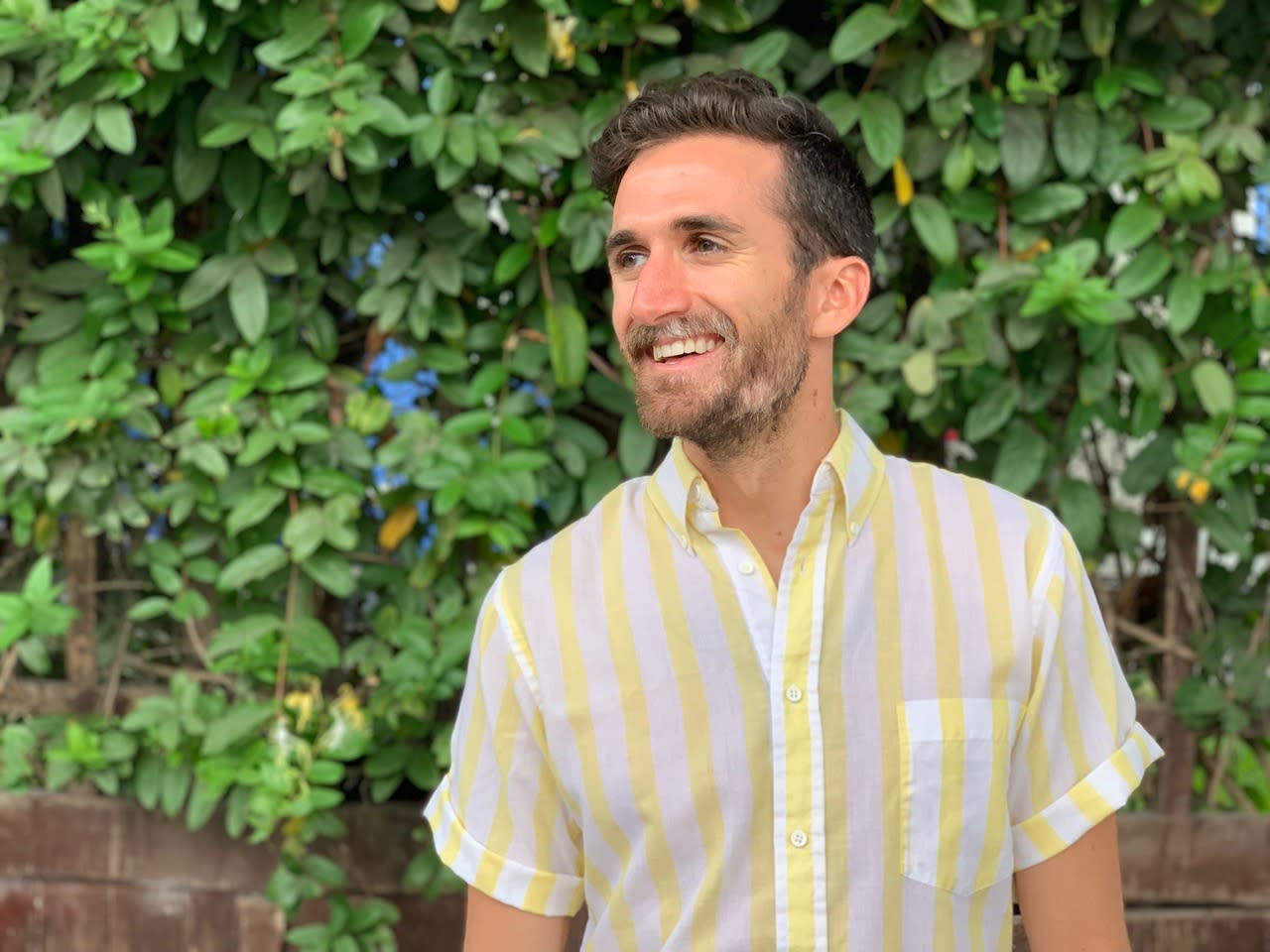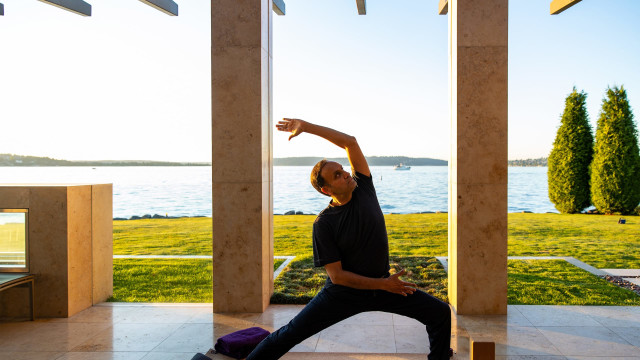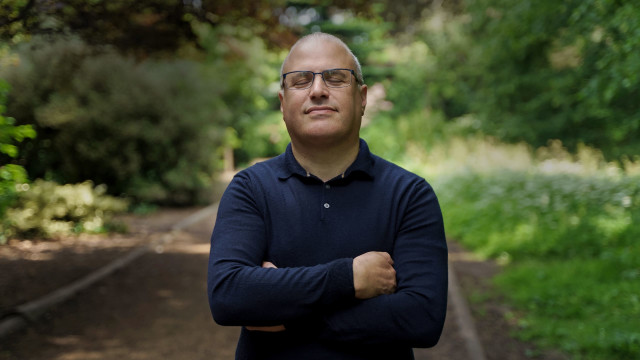A Deeper Practice Over Time

Stephen McManus has known about meditation for as long as he can remember, but it wasn't until he was introduced to Tibetan Buddhism that he began to deepen his practice. When he's not teaching yoga or meditation, he's making spiritual memes. Here, he talks about being a skeptic, staying consistent, and the magic of meditation.
Q: How were you introduced to meditation?
A: It happened when I was a baby! I was born into meditation because my mom was into meditation and yoga; she went to an ashram a couple times a year and would bring me, so meditation was a word I knew growing up. I didn't know what I was doing, but I would sit there in silence and try to force some experience to happen internally.
I have rediscovered meditation and its practical utility throughout my life, but I didn't dive deep until eight years ago, after college, when I started a consistent, intentional practice.
Q: How did you find your meditation style, and why does it work so well for you?
A: I've been studying Tibetan Buddhism for the past eight years. Many of the meditations practiced in Tibetan Buddhism are visual. While I'm a visual learner, they work so well for me because they gave me the mechanics of why meditation is effective. That's what I'm always looking for — how something works. I'm the biggest skeptic ever, so you have to explain it to me; if it's not facts, then I don't believe it.
Tibetan Buddhism has been tested for 2,500 years, and the tradition is deconstructed in a concise and engaging manner. They're also great debaters, so they would pose questions like, "You think you have control over your mind? OK, sit down for 30 seconds in stillness and see if you do. Can you think about the breath for 30 seconds?" You realize your mind is wandering after five seconds, and you say, "I guess I have a lot to learn here." They have the mechanics of how everything works and illuminate the entire path; if you want to go all the way from A to Z, we have this laid out for you.

Q: What's your top tip for a beginning meditator?
A: Try to establish a consistent practice, even if it's just for a minute a day. Start small; that was the biggest thing for me — if you can do something every day, you'll see the benefits of this practice. Many people try it, and they're like, "Oh, it's not working," and they give up.
Start with something you can commit to that doesn't feel overwhelming and grow it from there.
Q:What are the greatest benefits you've received from meditating?
A: One is reducing anxiety, which I struggled with for a long time. It still pops up now and then, but I feel it's manageable. When a person is suffering to the extent they cannot see around or beyond it, it becomes difficult to share ideas about enlightenment. I remember dealing with pain and anxiety that seemed permanent and unchangeable – at that moment.
Once I was able to get past that, I think the most significant benefit for me was experiencing the benefits of mindfulness. These bigger ideas that we talk about in religion — these stories of saints and sages, seem unreal, yet meditation makes it plausible. We are magical beings, the power of the mind is incredible, and our consciousness can expand so much and go beyond what we think is possible.
Q: What are your favorite topics to focus on in your classes?
A: I love a good emptiness meditation — there's so much to grapple with there because the idea is so slippery. I also love compassion meditations, anything dealing with the heart space and opening that up, because I struggle to get into my heart and feel and love. I also love simple breath meditations, something that's grounding and about connecting with your breath, your body, and the sensations in the body.
As you build a meditation practice, it’s important to cultivate your own relationship with it. Try this 21-Day Jump-Start to a Powerful, Joyous Meditation Practice, by meditation teacher David Hargshada Wagner.
Header photo: Skynesher/E+/Getty Images









